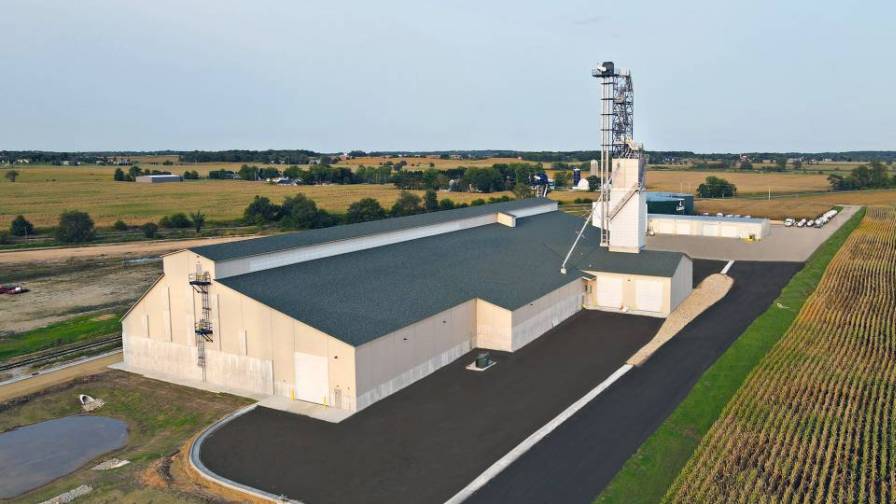Fertilizer Contracts: A More Formal Relationship
Ask any ag retailer what makes their business model work and chances are good that their answer will involve the word “relationship.” Grower-customers are not only trusted business partners, but also friends and “good guys.” In this environment, handshake agreements have traditionally been good enough to seal deals worth millions of dollars for both sides.
But according to J. Stephen Lucas, president of Jayhawker Consulting Co., LLC, this view of the ag retail world has been largely rendered obsolete by the events of the past two years. In today’s world, handshake deals need to be replaced with formal contracts, to protect both sides from wild fluctuations in the commodities market and prevent “he said/she said” debates that could ultimately end up in court.
“In the grain business, using contracts is second nature,” said Lucas, speaking at the 2009 Agricultural Retailers Association (ARA) meeting. “We don’t do anything without that confirmation. I’m horrified that people buy and sell stuff without contracts. Sure, you can view your grower-customers as friends and good old buddies, until there’s a $100 per ton difference in the fertilizer price. Then, without a formal contract in place, you may find out that grower-customer isn’t such a good old guy after all.”
Jim Shelton, manager of agronomy for Landmark Agronomy Services, Juda, WI, agrees that handshake deals are becoming a thing of the past. “It’s just good business to have a contract,” says Shelton. “Everyone who buys a $2,000 motorcycle has to sign a contract to make the purchase. It doesn’t make sense that our industry will sell $100,000 worth of fertilizer with just a handshake.”
Preparing For The Future
According to Shelton, Landmark has been using fertilizer contracts in its business since 2006. “Back then, the fertilizer market was booming and all the prices were steadily ratcheting up,” he says. “But we realized that market would eventually fall back down to Earth, and all these handshake deals could potentially come back to bite us in the you-know-where.”
To get started, the cooperative used the contracts it signed with crop input suppliers as templates to create its own contracts. These were then reviewed by Landmark’s legal representatives for clarity.
Introducing the fertilizer contracts into the company’s business model took a little bit of time, says Shelton, but not because of reluctance on the part of the grower-customers. “Once we explained the risk and volatility aspects of the fertilizer market to them, there was no problem,” he says. “Besides, growers tend to understand the idea behind contracts because they’ve used them with their grain business forever.
“The toughest part was getting our sales representatives to buy into this concept,” he continues. “That took us almost a full year to accomplish.”
Today, formal contracts for fertilizer purchases at Landmark represent 100% of the cooperative’s business transactions. In the past year, says Shelton, more than 1,700 contracts were filed with the company. “We even have an online contract option for growers if they prefer,” he says.
Offering Protection
In Spring 2009, ARA formed the Fertilizer Contract Task Force with the objective of developing an ARA-branded fertilizer contract confirmation that specifies the mutual agreed upon terms of the buyer and seller between any two business entities in the distribution system: manufacturer, distributor, retailer, and end user. The association undertook this effort in response to the extreme volatility that has occurred with fertilizer prices and supplies over the past few years. This was viewed as a way to help establish better risk management, more accountability, and common terms and conditions.
The sample contract was formally introduced at the ARA annual meeting in December. Among the items spelled out in the document are breach of contract penalties, technical assistance from the seller, and taking disputes to arbitration. According to Jacob Bylund, a lawyer specializing in agribusiness with Faegre & Benson LLP, this should protect both buyer and seller from the threat of default in tough financial times, such as the ones most retailers and growers experienced during late 2008 and 2009.
In addition, says Landmark’s Shelton, the formal contract can be used to spell out liability terms with grower-customers that store fertilizer. “We put that on the back of all of our contracts,” he says. “The language says that the grower is responsible for any damages if there is a release of fertilizer we delivered from the equipment on his property. This protects us from any environmental claims that could come up.”
Since implementing its fertilizer contract arrangement, Landmark has found the system to be quite effective at not only protecting the company from cancelled orders, but saving money as well. “It took a lot of the guesswork out of our operations because everything we needed to do was spelled out beforehand in the contracts,” he says. “Without contracts in place during 2009, I’m convinced our company would have lost an additional $4 million in revenue on top of what we did lose.”
His advice to other ag retailers is to not delay in implementing their own fertilizer contract programs. “Given what’s happened to our industry during 2008 and 2009, with constant price ups and downs and some grower-customers looking to back out of their verbal purchase agreements, the time is definitely right to start using contracts to protect yourselves,” says Shelton. “If ever there was a year to launch this kind of thing with your grower-customers, it’s 2010.”






